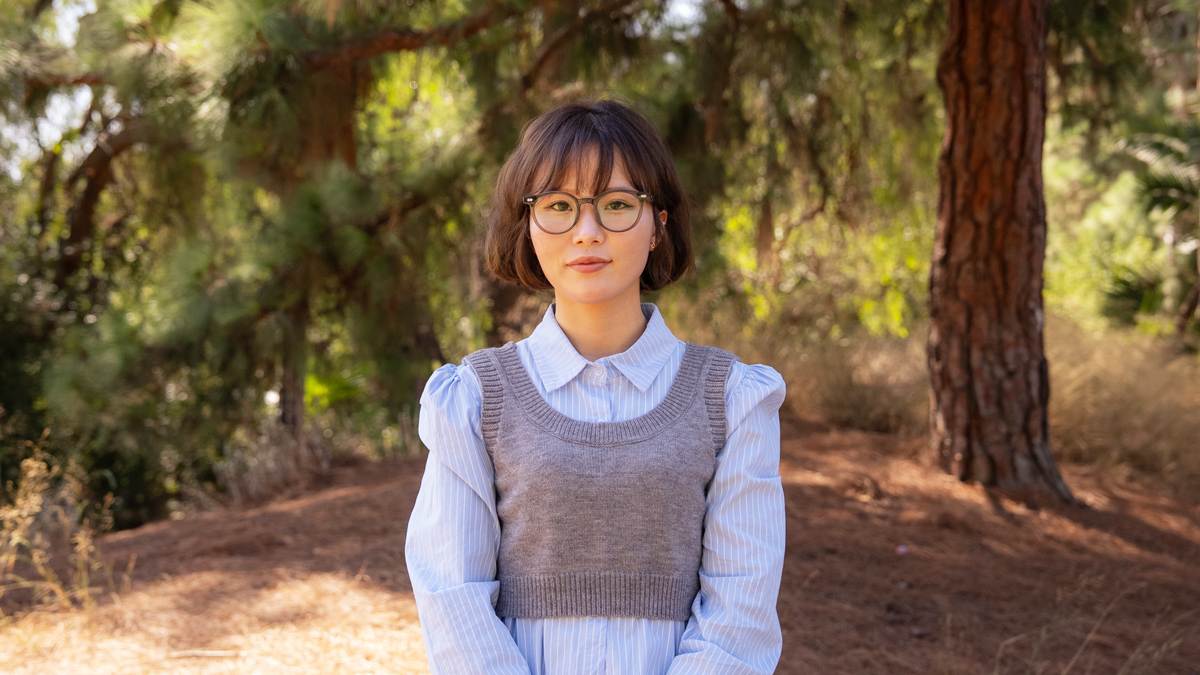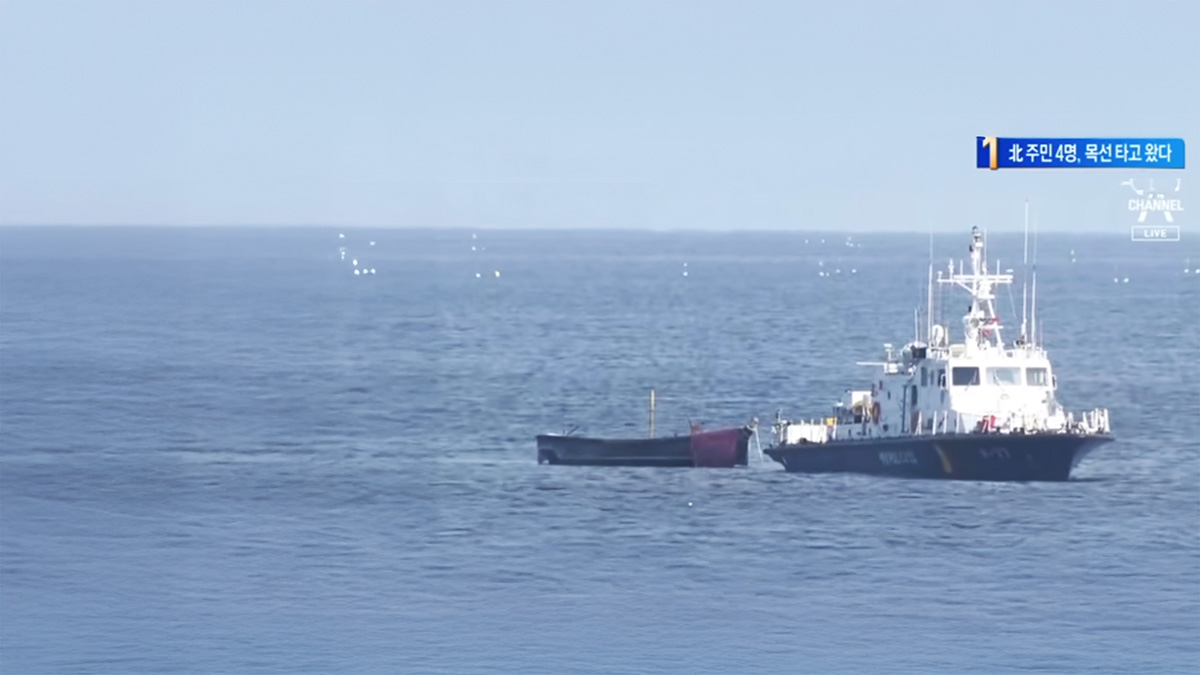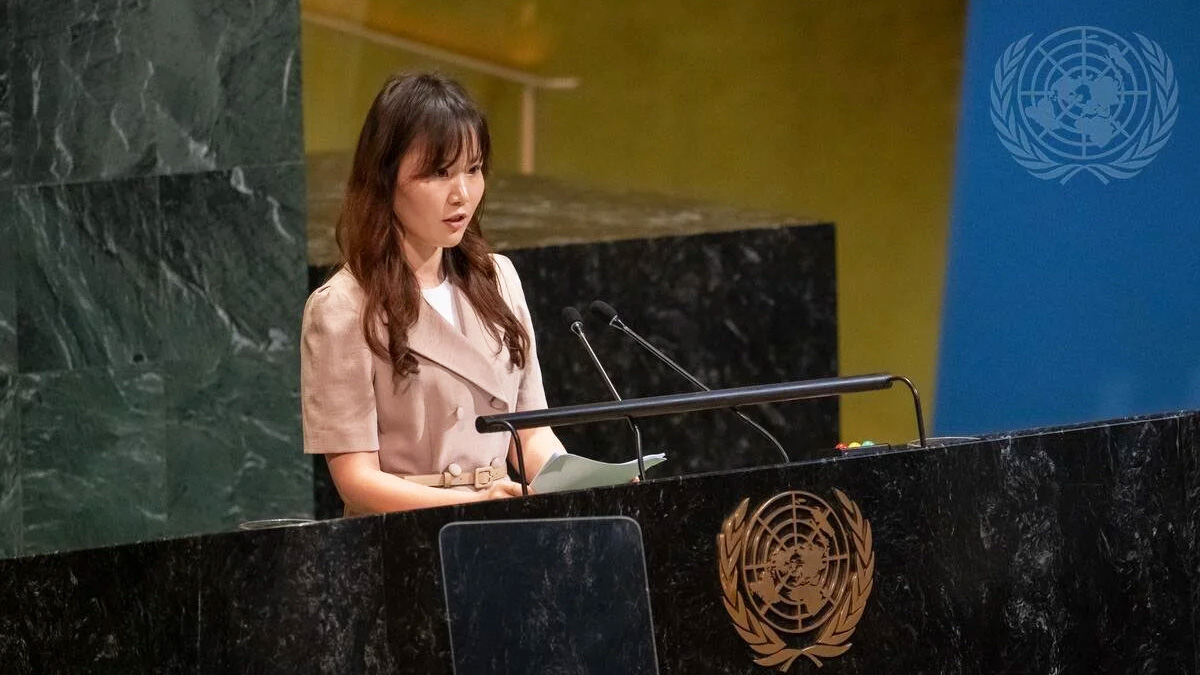An Exclusive Interview With LiNK’s Field Manager
.jpg)
Over 1,200 North Korean refugees have reached freedom through our secret rescue routes. Michael Kim* is LiNK’s Field Manager and has overseen dozens of rescue missions, helping hundreds of these refugees safely reach freedom. Here is an exclusive interview with Michael, only for Liberty Donors like you! *Name changed for security reasons
Why did you want to work on the North Korean issue?
Michael: I went to university in South Korea and there I met North Koreans for the first time. I became really good friends with them without knowing they were from North Korea. As we grew closer, I grew more aware and informed. I also studied Political Science and International Relations, so I wanted to be more involved in the North Korean issue..
After college I went to serve in the South Korean military. The mandatory military service is a constant reminder of the “other” Korea – a Korea where people have drastically different living standards. Basically everything you do in the military is preparing for a potential war with North Korea. They were seen as “the enemy.” But I had friends who were from North Korea. I realized I should do something to change the situation on the Korean peninsula.
What made you want to work in the field?
Michael: I planned to go to graduate school but then a position in the field opened. I realized it was a once-in-a-lifetime opportunity and a really meaningful role. I ultimately decided to apply because I trusted LiNK and the work. It was a special opportunity because I would get to meet North Korean refugees during the most vulnerable state of their journeys and represent LiNK and the supporters who care about them.
What is the hardest part of your job?
Michael: It’s hands down the isolation. For security reasons, we can’t be open about our work. In Southeast Asia, we meet people but can’t reveal why we’re there or what we do. We have to come up with cover stories and when people ask too many questions, we shut them down. “Ah it’s just work. It’s boring. You don’t want to know.” It makes it hard to build meaningful connections outside of work.
Sometimes it takes a toll. Because there are times you do want to share your life with people. But this is why the field team is so close. Everyone shares everything so it’s like a family.
.jpg)
What is your favorite part of the job?
Michael: Meeting our North Korean friends. When we meet, we tell them, “We’re honored to meet you.” And we mean it. We’re thankful and thrilled they made it this far and had the courage to seek freedom.
When you meet North Korean refugees in the field, what do they need the most?
Michael: When we meet them in person for the first time, they’re physically and mentally exhausted because of the long and dangerous journey they just went through. The fact that they made it to Southeast Asia is such a feat.
We focus on three things.
First, we want to support them physically and mentally. We make sure they get rest and create a safe space for them to recuperate.Even just meeting us gives the North Korean refugees a sense of relief. Throughout their journeys, they get directions over the phone or through people to go to pick up spots. So when they reach the final destination and hear the South Korean accent for the first time, it’s like a sign of freedom. They’ve only heard the accent in South Korean movies and dramas.Many of them have not been able to speak their native language freely since they left North Korea so they can finally relax and speak freely. As they share their journeys with us, we build personal relationships with them and it gives them so much encouragement and support.
Second, we do a quality control check. We ask them if anyone on their journey demanded money from them or treated them without dignity or respect. Because of our donor’s generous support refugees do not have to pay to be rescued by LiNK and we want to ensure refugees were not asked to pay by anyone on their route.
Lastly, we give them information. We let them know what to expect during the resettlement process and answer their questions. In some cases, refugees don’t know where they’re going because they’re trying to reunite with family members. We try to fill in the blanks and help them gain a fuller picture of what’s next.
.jpg)
What are some questions you get from North Korean refugees?
Michael: If there’s a refugee who just left North Korea, they might ask really random questions. Everything is so new to them. They ask about the traffic lights or the names of trees in Southeast Asia. Many of them want to learn how to speak in a South Korean accent.
They also ask really pragmatic questions like, “What should I do in South Korea to make money so that I can bring my children out of North Korea?” This is a really common question.
One question someone asked was, “Can I travel abroad? And how long can I do that before the government wants me back in the country?” We explain to them that as long as they have a visa to the country they’re going, the South Korean government doesn’t care how long they’re gone!
What are surprising things you hear from North Korean refugees about North Korea?
Michael: The living conditions in North Korea are so bad. It shouldn’t surprise us anymore but every time you hear about it, it’s not easy. For example, they tell us that they were working for the government but were basically forced into slave labor. They’re doing this hard labor but they’re not getting paid by the government. In order to survive, they have to do something on the side.
Another grim reality is military life. North Korean men have to serve 10 years in the military and it’s not like life is easy there. People have said that they defected because they think about their little boys' futures. They know that once their son turns 18, he has to go to the military. By the time he returns, he’ll be 30. And they will miss out on all their time together.
What do most North Korean refugees want to do once they reach freedom?
Michael: It depends. Parents just want a better future for their children. Most people really want to learn. They’re hungry for knowledge. They want to learn how things are outside of North Korea and in the world. When we ask them what they want to do, most will tell you that “I don't know enough to know what I want. I just want to go there and see what options I have.”
.jpg)
What field experience has stayed with you?
Michael: Refugees don’t fully grasp the idea of having donors supporting the North Korean people unconditionally. They end up asking, “What do they really get out of this? Why are they doing this? Is this the government?” It’s really hard to understand that individuals on the other side of the world care enough to support them.
But occasionally, we have people who fully understand and they feel so moved and inspired that they in turn want to participate in this movement. And that is really powerful. Seeing them go from a position of getting help to wanting to do something is always powerful to witness. It’s one thing to be grateful, but it’s another to say, “Now it’s my turn. Once I get to South Korea, this is what I’m going to do. I’m going to find ways to contribute.” They tell us that our work has opened their minds and they want to help.
Is there anything you want to say to our donors?
Michael: We can solely focus on what is best for the North Korean refugees only because we have so many generous people who support what we’re doing in the field. We do our best to be good stewards, but the fact that we can just focus on our work and what we can do better instead of worrying about funding is liberating. Because we’re in the field, we don’t really get to meet donors, but everything that we do - it reminds us that it’s only possible because of our donors and their support. We feel the support and we are so grateful!
Thanks to your monthly gift, Michael and his team are able to help rescue North Korean refugees at a moment’s notice. We’re so thankful for your continued support! Thank you for standing alongside the North Korean people!
A North Korean Refugee’s Daring Escape By Boat | Gyuri Kang’s Story
Escaping from inside North Korea remains almost impossible today. Borders remain sealed by the legacy of pandemic-era restrictions, while surveillance in China continues to intensify. But in 2023, a group of North Koreans crossed into South Korean waters on a small fishing boat—a rare and extraordinary way to reach freedom. Abroad the vessel was 22-year-old Gyuri Kang with her mother and aunt.

You were never supposed to know my name, see my face, or hear my story. Because I was one of 26 million lives hidden inside North Korea.
I was born in the North Korean capital, Pyongyang. The first time the government decided my future without my consent, I was only a child. My family was exiled to a rural fishing village because of my grandmother’s religion.
In the system we were living in, not even your beliefs or thoughts are truly your own.
On my way to school, youth league officers would inspect my clothes and belongings, punishing me for even a hairpin or a skirt that was a few centimeters too short. At school, we were taught that “we live in the most dignified nation in the world,” but outside those walls, people were collapsing from hunger in the streets.
Careless words overheard by a neighbor could turn into a knock at the door in the middle of the night. The radio played government broadcasts all day long, and searching other frequencies was a risk no one dared to take. This is how the North Korean government maintains control over people. By convincing you that survival depends on submission.

I returned to Pyongyang as an adult. I majored in table tennis at the Pyongyang University of Physical Education and imagined myself making a new life, built on talent and hard work.
But reality was nothing like what I had dreamed. I came to understand a deep, painful truth: In the end, everything was determined by how well you obeyed, not how hard you worked.
Frustration and emptiness built up until I finally decided to leave Pyongyang.
I wanted to help support my mother and aunt, so I moved to the coast to try and build a life of my own. My mother used all of her hard-earned life savings to buy me a small wooden fishing boat so I could start a business harvesting clams.
That boat was more than a way to make a living. It was a daily reminder of her sacrifice, and the depth of their love and trust in me. If the money I earned with my own hands could put even one less wrinkle on her forehead, that was enough for me.

As a boatowner, I woke up early in the mornings to prepare supplies, get the crew together, and encourage them. I inspected the condition of the boat and hired people to help fix the engine and other faulty parts. Although I couldn’t go out to sea because I’m a woman, I was responsible for ensuring the ship operated smoothly.
But the harder I worked, the more government officials came to me—demanding baskets of clams and money. They justified their demands by saying: “The Party orders it,” threatening to punish anyone who refused. Every night I agonized over how to protect my people and keep my business going, and how I should respond. In those moments, I would remember the love and devotion my mother and aunt had poured into me and it gave me strength to persevere.
To escape my reality, at night I secretly watched South Korean TV shows on a television that was smuggled in from China.
My world turned upside down. With my friends who were also watching South Korean media, we would cautiously express our dissatisfaction together while also copying the hairstyles and outfits we saw in dramas. Sometimes, we would even try to mimic South Korean words or accents when talking or texting together.
But under Kim Jong Un, punishments became much more severe. Two people I knew were executed for watching and sharing foreign media. Our lives became harder, control over young people became more intense, and our resentment began to grow.

But no matter how much they tried to repress us, frustrated young people like me continued watching forbidden content as a way to forget reality. Foreign media has quietly found its way into North Korea for decades. As I grew up, it began spreading more than ever before, through USBs passed between friends or broadcasts picked up on illegal devices.
Many defectors, like me, can remember the exact episode of a TV show, a specific South Korean song, or even a traffic report, that planted the first seeds of doubt.
Of course, dramas and movies don’t tell the whole story, but they show a life that contradicts everything we were taught. And it makes you wonder: if life is so different out there, why does it have to be this way here?
I realized it doesn’t just show people that different lives exist. It gives them the belief that their life could be different. And that belief gives people the courage to choose a different future.
The thing about information is once you learn something, you cannot unlearn it. I remember watching people on my screen speak freely, laugh openly, and pursue their dreams—things that were unimaginable in North Korea. For the first time, I wondered if everything we were taught might be wrong. That doubt led to questions, and my curiosity became too strong to ignore. Now that I had seen the truth, I could never go back to the person I was before.

Escaping North Korea cannot be explained by the simple word “leaving.” This was especially true for me because I escaped together with my mom and my aunt. They had placed their trust in me when they gave me money for that boat. And now I was placing my trust in that boat to carry us across the sea to freedom.
I planned our escape in complete secrecy.
I bought a smuggled GPS device from China, carefully traced our route, observed the currents and tides, learned the patrol schedules of the guard boats, and figured out the blind spots of the coastal guard posts. I meticulously checked the condition of the boat and quietly prepared all the food and supplies we would need. I trained my body for the wind and the waves, and my mind for the terror of being caught.
Some nights I woke up in a panic. Other times my confidence crumbled and I thought, maybe I should give up and just accept the life I have. But in those moments, I imagined what waited at the end of the journey.
I wasn’t leaving just to stay alive. I was leaving so that I could live like a human being.
On the night we left, we climbed into my boat and pushed off into the dark water. I gripped the rudder and let the current carry us south, carefully navigating around the guard posts and patrol boats who were on the water looking for people like us.

I knew what would happen if we were caught. Arrest. Endless investigations. Humiliation. Public trials. Political prison camp. And the possibility that I might lose the people I loved most in the world.
My mother and aunt were trembling with fear. I had to hide my own fear to tell them what I could only hope. We will survive. We spent the night being tossed back and forth on the East Sea. Black waves lifted our boat like a toy before smashing it down again. Every crash sent water over the sides and threatened to swallow us up.
Suddenly, a patrol ship appeared. Its lights stabbed the water, blinding us, and started coming closer and closer. It was coming for us. My chest pounded so hard I felt it might burst. I thought of the sleeping pills we had brought.
We had agreed that if capture became inevitable, we would rather take our own lives. It was a fate we preferred to execution or prison camps. As the coast guard closed in, I wondered, is it time for the pills?
But I refused to give in. We were so close. I steered away from the searchlights, surrendered the boat to the churning water, and pushed on forward.
Suddenly, the patrol vessel stopped and turned back around. They could no longer chase us. We had reached the maritime border. The sea calmed, as if it was welcoming us to freedom. And as the sun rose, we saw the outline of land.
A South Korean fisherman, hearing radio reports that North Korean patrols were in pursuit, realized we were the boat being chased. He steered his boat toward us and said, "Welcome. You are safe now."

It’s been almost two years since we arrived in South Korea.
I still remember moving into our apartment and using a showerhead for the first time, experiencing hot water flowing straight from the tap. I couldn’t believe it. That day, my mother, my aunt and I took turns showering, laughing, and saying to each other, “So this is what a human life feels like.”
For the first time in my life, I could choose my studies, my job, my clothes, my hobbies—even the way I spoke—for myself. It felt like an entirely new world. We were being reborn, leaving behind a past of silence and control for a life with dignity and a future we could choose ourselves.
My mother began studying for a professional certification. And my aunt enrolled in social welfare classes to help others. I studied hard and was recently accepted into Ewha University. I have also been active in North Korean human rights activism and I even started a YouTube channel to show the world what it looks like to start a new life in South Korea.

Hope is dangerous for the North Korean government. Millions of people live with anger and sadness, but even more live in resignation. Most do not realize their rights are being violated—they don’t know what “rights” are. I once believed it was normal for the state to control every part of our lives. I thought every country lived this way.
But the moment you realize life could be different, hope begins to take root. And once hope exists, change is no longer unimaginable.
My dream is that someday North Korea will be a place where young people choose their own paths, where no one is punished for their words, and where every person lives as the true owner of their life. While so much of North Korea’s reality is dark, change is already happening. And what sparks that change is information. A single truth from the outside world, a glimpse of what life could be, can plant a seed of doubt, or ignite a spark of hope.
That’s why I speak out. If I don’t tell my story, who will tell it for me? If I stay silent, will the death of my friends, and the suffering and starvation my family endured be forgotten?
Right now, in North Korea, there is someone just like me—sitting in a dark room, secretly watching a South Korean broadcast, quietly wondering: Could I also live like that?
I want my story to prove that this hope can become a reality. I want to stand in the middle of that change. Not just as someone who escaped to enjoy freedom, but as someone determined to one day share that freedom with all North Korean people.
Freedom is not given, but it is something we can achieve. With your support, we can write a future where all North Korean people are free.
Foreign media gave Gyuri a glimpse of the outside world—and the courage to seek freedom.
Increasing North Korean people’s access to outside information is one of the most effective levers for change in the country. And that is exactly what we’re doing at Liberty in North Korea
In partnership with North Korean defectors and engineers, LiNK develops tailor-made technology, tools, and content that help people inside the country access more information more safely. These glimpses into the wider world build people’s resilience to the regime’s propaganda, and emboldens them to imagine a different future for themselves and their country.
Help fuel work that’s directly supporting North Koreans driving change on the inside.




